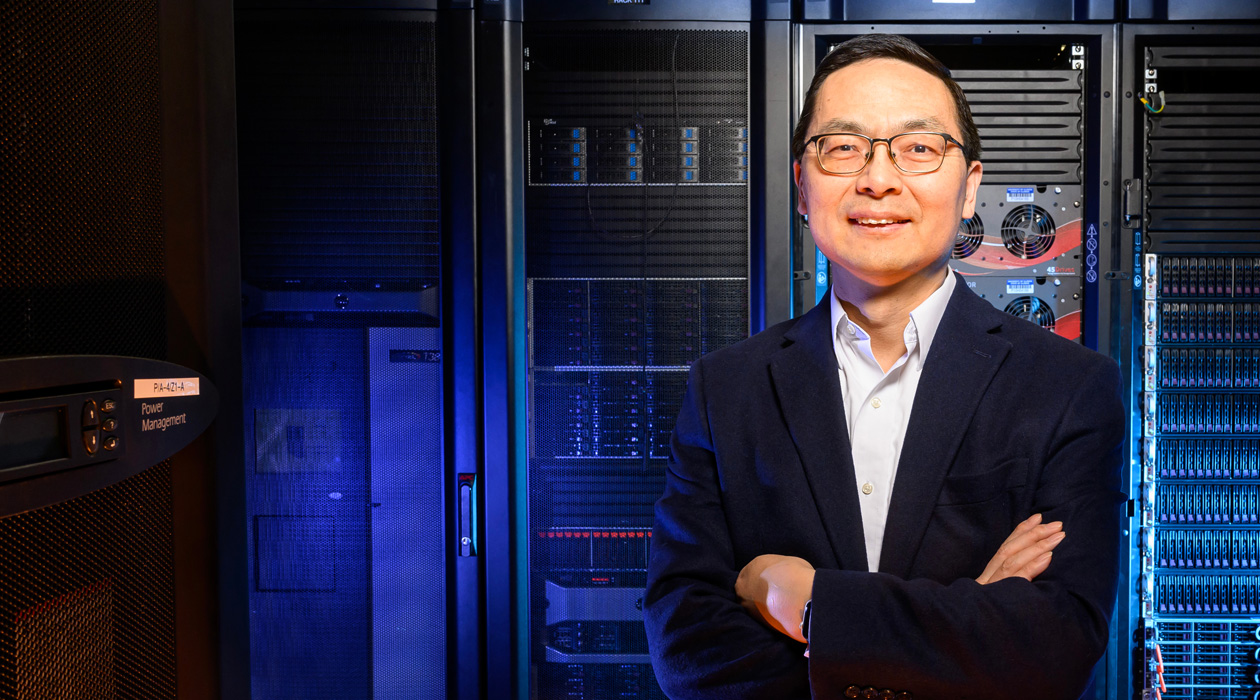NSF to invest $5M to the Reliable and Scalable Biofoundries for Biomanufacturing and Global Bioeconomy

Steven L. Miller Chair of Chemical and Biomolecular Engineering Huimin Zhao / Fred Zwicky
The U.S. National Science Foundation and partner agencies in the U.S., Canada, Finland, Japan, the Republic of Korea (ROK), and the United Kingdom announced funding awards in their Global Centers competition. One of the centers, the Reliable and Scalable Biofoundries for Biomanufacturing and Global Bioeconomy, includes researchers from the University of Illinois Urbana-Champaign.
2024 Global Centers awards focus on advancing bioeconomy research to solve global challenges, whether by increasing crop resilience, converting plant matter or other biomass into fuel, or paving the way for biofoundries to scale-up applications of biotechnology for societal benefit. The program supports holistic, multidisciplinary projects that bring together international teams and scientific disciplines, including education and social sciences, necessary to achieve use-inspired outcomes. All Global Centers will integrate public engagement and workforce development, paying close attention to impacts on communities.
"Global Centers are leveraging expertise and resources across like-minded nations and uniting multidisciplinary teams from around the world to accelerate innovations in the bioeconomy for great impact," said NSF Director Sethuraman Panchanathan. "Together, we are forging new solutions to pressing socioeconomic challenges impacting all of us. These international centers of research excellence will generate crucial knowledge, empower communities and strengthen the foundations of global cooperation."
Partner agencies include the National Endowment for the Humanities in the U.S.; the Natural Sciences and Engineering Research Council (NSERC) and Social Sciences and Humanities Research Council (SSHRC) of Canada; the Research Council of Finland (RCF) and Innovation Funding Agency Business Finland; the Japan Science and Technology Agency (JST); the ROK Ministry of Science and ICT and the National Research Foundation of Korea; and United Kingdom Research and Innovation (UKRI).
The new Global Center, which will be based at Illinois, and will leverage the expertise from seven biofoundries in the U.S., Finland, Japan, ROK, and the U.K. Led by Huimin Zhao (BSD leader/CABBI/CGD/MMG), Steven L. Miller Chair of Chemical and Biomolecular Engineering, the team consists of 40 investigators from five countries and 17 institutions, including universities, national labs, private companies, and non-for-profit organizations. The Center will bring together experts in synthetic biology, biofoundry, automation and robotics, software engineering, governance, education, diversity, public policy, and outreach. It will focus on four thrusts: developing and validating cross-national standards and metrics for biofoundry applications; performing cross-national comparisons of governance and regulatory frameworks for biofoundries to establish best practices; developing cross-national programs for industry partnerships, public outreach, education, and workforce development.
“Biofoundries stand to be as transformative to biotechnology as computers are to information technology. However, their wide adoption for biomanufacturing and global bioeconomy is hindered by the lack of standards and metrics in data, workflows, ontologies, and regulatory considerations,” Zhao said. “Together with our partners, we will address this grand challenge to enable full-scale adoption of biofoundry applications throughout society.”
